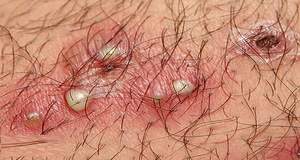Alcoholic Hepatitis
Is an inflammation of the liver. It is typically caused by excessive alcohol consumption over a long period of time. If you develop this condition, you must stop drinking alcohol. Continued drinking can lead to additional health problems, such as cirrhosis (scarring) of the liver or liver failure.
Signs and Symptoms
Patients who are severely affected present with subacute onset of fever, hepatomegaly, leukocytosis, marked impairment of liver function (e.g., jaundice, coagulopathy), and manifestations of portal hypertension (e.g., ascites, hepatic encephalopathy, variceal hemorrhage). However, milder forms of alcoholic hepatitis often do not cause any symptoms.
However as more damage occurs, you may begin to experience:
- changes in appetite
- dry mouth
- weight loss
- nausea and vomiting
- pain or swelling in the abdomen
- yellowing of the skin or eyes (jaundice)
- fever
- changes in your mental state, including confusion
- fatigue
Causes of Alcoholic Hepatitis
Alcoholic hepatitis occurs when the liver is damaged by the alcohol you drink. Just how alcohol damages the liver and why it does so only in a minority of heavy drinkers isn’t clear. What is known is that the process of breaking down ethanol the alcohol in beer, wine and liquor produces highly toxic chemicals, such as acetaldehyde. These chemicals trigger inflammation that destroys liver cells. Over time, web-like scars and small knots of tissue replace healthy liver tissue, interfering with the liver’s ability to function. This irreversible scarring, called cirrhosis, is the final stage of alcoholic liver disease.
Treatment Options for Alcoholic Hepatitis
If you are diagnosed with alcoholic hepatitis, you will need to stop drinking. By avoiding alcohol, you may be able to reverse the damage that was done to your liver.
Even if the damage is too severe to reverse, you should still quit drinking to prevent further harm to your liver. You might need help to stop drinking, especially if you are struggling with alcohol addiction. Be sure to talk to your doctor about the different treatment options for addiction.
Treatment for alcoholic hepatitis may also include medications that reduce inflammation in your liver and improve liver function.
If you are malnourished, your doctor may also prescribe vitamin and nutrient supplements. If you are having difficulty eating, these nutrients may be provided through a feeding tube. A feeding tube is passed from your nose or mouth into your stomach, allowing nutrient-rich liquids to enter your body.
If your liver is severely damaged, your doctor may recommend a liver transplant. To qualify for a transplant, you must demonstrate that you will not continue drinking if you receive a new liver. You will also need to abstain from alcohol for at least six months. In some cases, you may be required to seek counseling as well.


















